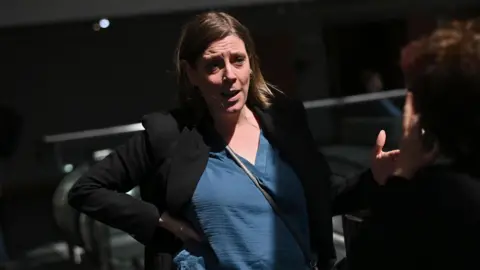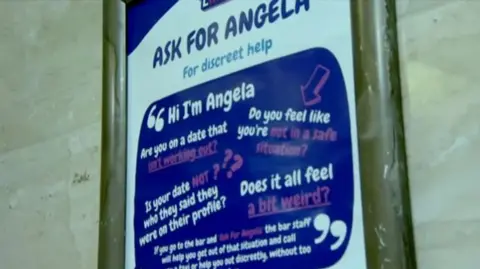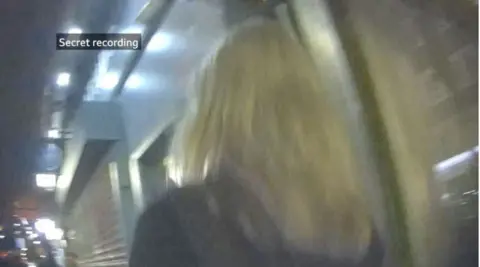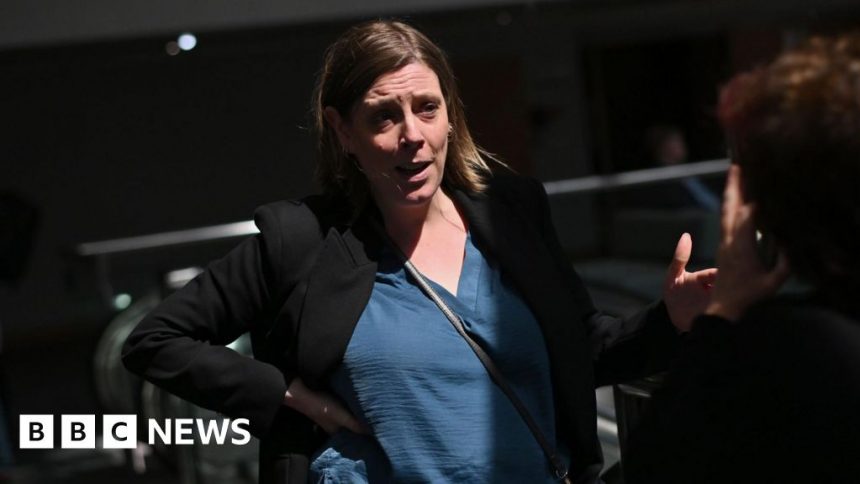Minister tested Ask for Angela scheme undercover
 Getty Images
Getty ImagesA government minister has revealed she covertly tested the Ask for Angela safety scheme at venues across the UK until she became too well-known to continue the undercover checks.
The scheme, launched in 2016 and named after Angela Crompton who was killed by her husband, allows people to discreetly signal they need help by using a code word at participating venues.
Jess Phillips, minister for safeguarding and violence against women and girls, disclosed her secret visits after a BBC investigation found more than half of participating venues failed to implement the scheme properly.
Ms Phillips says she found the response in the pubs and bars she checked herself wholly unsatisfactory.

“I have tested the Ask for Angela system a number of times, not just in London, but around the country and where I see it,” Ms Phillips told the BBC.
“And I have to say, I have always found the response wanting.”
Ms Phillips added that she “likes to test” safety systems like Ask for Angela, but has become too well known now to continue.
Her comments came after BBC undercover researchers posed as a couple on a date, with a female researcher approaching bar staff appearing distressed and asking for Angela.
The investigation found widespread confusion among staff, with many completely unaware of what the codeword meant despite their venues displaying Ask for Angela posters.
At more than half of the 25 London venues tested, staff were completely unaware of what the emergency codeword meant despite their venues displaying Ask for Angela posters.
The BBC received similar reports from around the UK.

Ms Phillips praised the BBC’s investigation, saying she felt “really grateful to the good work done by BBC London in highlighting that”.
The minister, who previously worked developing services for victims of domestic abuse at Women’s Aid in the West Midlands, emphasised that safety schemes were “meaningless if you don’t implement things properly on the ground”.
She said: “None of these schemes are ever fit for purpose if they are not trained properly.
“New laws, things written down on fancy scrolls that sit in the basement of the House of Commons… that’s meaningless if you don’t implement things properly on the ground.”
Her comments come after the government announced new training initiatives around spiking.
Ms Phillips stressed the importance of maintaining ongoing training rather than “pink washing” venues by simply displaying posters.
Following the BBC investigation, Cambridgeshire, West Midlands and Hertfordshire police forces announced they had conducted spot checks. The BBC findings mirror similar failures in the scheme’s implementation reported by women’s safety groups across other parts of the UK.
Staff at large chains including Greene King and JD Wetherspoon were among those who did not recognise the code word.
Greene King said it was concerned by the BBC’s findings and pledged to review how the scheme was communicated to its teams, while JD Wetherspoon said it would provide additional training if necessary.
Westminster City Council currently makes participation in the Ask for Angela scheme a key factor when deciding to grant alcohol licences.
Hundreds of thousands of pounds of public money has been spent promoting the initiative by police and local councils.
The safety scheme has since spread to other countries including Canada and the Netherlands.
Additional reporting by Barry Caffrey








